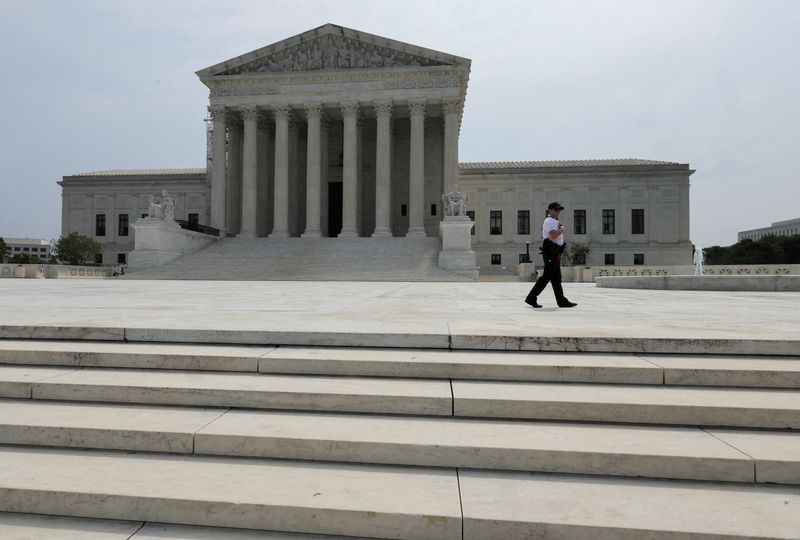By John Kruzel
WASHINGTON (Reuters) -U.S. Senate Democrats on Thursday advanced a bill that would mandate a binding ethics code for the Supreme Court after revelations that some conservative justices failed to disclose luxury trips and real estate transactions, though Republican opposition means it has little chance of becoming law.
The Democratic-led Senate Judiciary Committee voted 11-10 along party lines to approve the legislation, which would impose on the top U.S. judicial body new requirements for financial disclosures and for recusal from cases in which a justice may have a conflict of interest.
The bill now would need to pick up some Republican support to win passage in the full Senate and appears to have little chance to get through the Republican-led House of Representatives.
The committee's consideration of the measure, introduced by Senator Sheldon Whitehouse, gave Democrats a platform to decry the ethics of some members of the Supreme Court, whose 6-3 conservative majority continues to steer the law in a rightward direction.
"They are the most powerful judges in America," Senator Dick Durbin, the committee's Democratic chairman, said of the justices. "And yet they are not required to follow even the most basic ethical standards."
Senate Majority Leader Chuck Schumer, a Democrat, said in a speech on the Senate floor: "Holding Supreme Court justices to high ethical standards should not be a partisan issue. On the contrary, both sides should leap at the opportunity to do whatever we can to protect the public's trust in our system of justice."
Amendments offered by Republican senators that the committee did not adopt included proposals that would expand the right of judges to carry firearms and impose restrictions on journalists who cover the Supreme Court.
Some Republican senators sought to portray the ethics reform drive as a bid by liberals and Democrats to smear the court.
"This is a bill not designed to make the court stronger or more ethical. This is a bill to destroy a conservative court," Senator Lindsey Graham, the committee's top Republican, said on Thursday.
Unlike other members of the federal judiciary, the Supreme Court's nine life-tenured justices have no binding ethics code of conduct. They are subject, as many high-level federal officials are, to disclosure laws requiring them to report outside income and certain gifts, though food and other "personal hospitality" such as lodging at an individual's residence is generally exempted.
Justices also decide for themselves whether to step aside from cases involving a possible conflict of interest.

Recent reporting in ProPublica detailed decades-long ties between conservative Justice Clarence Thomas and billionaire Republican donor Harlan Crow, as well as conservative Justice Samuel Alito's failure to disclose a private flight to Alaska provided by a billionaire hedge fund manager.
The news outlet Politico reported that conservative Justice Neil Gorsuch did not disclose that the CEO of a major law firm whose lawyers have appeared before the Supreme Court bought a Colorado property in which Gorsuch had a stake. In addition, the Associated Press reported that aides to liberal Justice Sonia Sotomayor promoted sales of her books in conjunction with her speaking events.